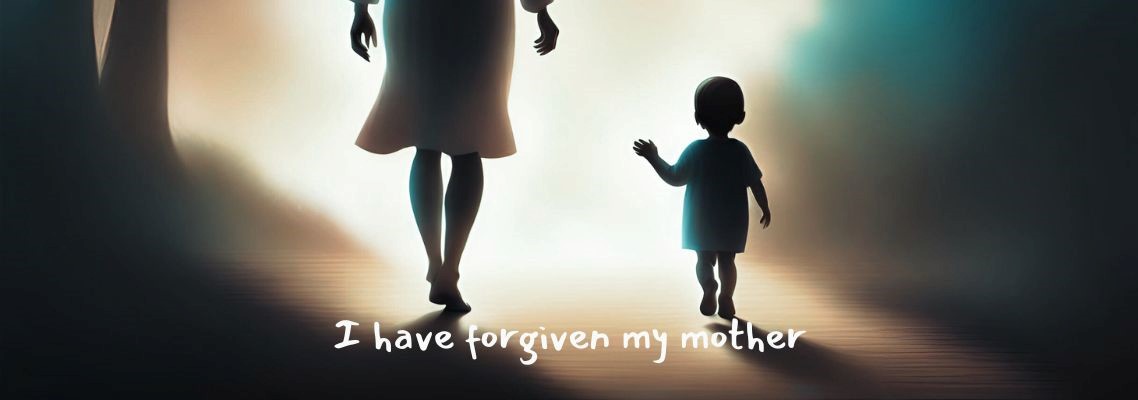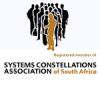
“I’ve forgiven my mother.” – A personal journey
2024-03-11
This has been the theme that came up in the group workshops I held recently.
But what exactly does that mean?
When we say we’ve forgiven someone, it often implies that they’ve done something wrong and owe us something in return.
So, what does your mother owe you?
- She hurt you.
- She abused you.
- She neglected her responsibilities as a mother.
- She was absent, too wrapped up in her own life.
- She abandoned you.
- She rejected you.
These are painful truths. Growing up with a mother who couldn’t provide what you needed can leave scars that affect how you navigate life.
You might find yourself feeling angry, bitter, and like you’ve been cheated out of opportunities because of your mother’s actions—or lack thereof. This is your reality, shaping how you see the world and how you live your life.
But here’s the thing: Forgiveness isn’t about excusing or forgetting what happened. It’s about releasing yourself from the burden of resentment and anger. It’s about freeing yourself from the past so you can move forward.
Forgiving your mother doesn’t mean that the hurt magically disappears. It doesn’t erase the pain or trauma you experienced. It’s a process—a journey toward healing and peace.
So, if you’ve forgiven your mother, ask yourself:
- Are the feelings of hurt and anger gone?
- Is the trauma fully healed?
If not, it’s okay. Forgiveness takes time and effort. It’s about acknowledging the pain and choosing to let go of the bitterness, step by step.
Remember, forgiving your mother doesn’t mean you’re letting her off the hook. It means you’re choosing to no longer let her actions control your life.
You deserve to live a life free from the weight of past hurts. And forgiveness is a powerful step toward reclaiming that freedom.
When you say, “I forgive my mother,” do all the feelings of hurt, anger, and sadness magically disappear? Does forgiving your mother heal the trauma of the abuse you endured?
Let’s dig a little deeper.
Imagine saying to your mother, “Mom, I miss you.” Notice what emotions arise in your body. Yes, you might feel all the hurt, pain, and memories of what you went through resurface.
Now, as an adult, you might say, “I don’t miss my mom. I’m glad I have a life that isn’t controlled by her anymore.”
And that might be true. You might feel justified in forgiving your mother to break free from her influence and live your life to the fullest.
But have you truly made peace with the abuse you suffered as a child? Have you made peace with the fact that you missed having your mother there for you? Have you accepted that your mother did the best she could, given her circumstances?
If you can’t honestly answer “Yes” to these questions, then perhaps your forgiveness isn’t as genuine as you think.
It’s important to confront these truths and explore the depths of your forgiveness. Only then can you truly heal and move forward with peace and clarity.
Why do I, Sonja dare to question whether I’ve truly forgiven my mother? I fully acknowledge that what is between you and your mother has nothing to do with me. Please look kindly upon me if I overstep my boundary here, but…
I’ve been there—I know the feeling all too well. Every mention of my mother triggered a whirlwind of emotions for me. Whether it was witnessing a loving interaction between a mother and child or simply recalling a memory, my anger, sadness, and despair would resurface. Even moments when I felt inadequate brought these feelings rushing back.
The “nasty” truth about trauma is: it doesn’t just disappear because we believe we’ve forgiven someone.
Forgiveness is merely the first step in a much larger journey. It’s a process—one that requires facing the pain and trauma head-on. Complete healing means addressing all the wounds inflicted by your mother during your childhood and examining the beliefs that stemmed from those experiences.
So, how do you achieve this complete healing?
It starts by acknowledging the emotions triggered by certain statements about your mother. For example, how do you feel when you hear, “Your mother was the best she could be”? Or when you’re reminded that she’s your only mother?
Before we move forward, it’s crucial to recognize any judgments or criticisms you may have towards your mother. These feelings often stem from a wounded inner child who expected nurturing, love, and care from their mother but felt lost and unprotected instead.
Understanding these emotions is key to embarking on the journey of forgiveness and healing. It’s about confronting the pain and allowing yourself to move forward with compassion and understanding.
The feelings of the little child are completely understandable and valid. Let’s dive deeper into this.
Think about it: your mother gave birth to you. Regardless of whether she was ready or not, she carried you in her womb from the moment of conception until your birth. That alone makes her your one and only mother. It’s a bond that’s inherently sacred and unbreakable. That’s why it hurts so deeply when we feel let down by our mothers.
As a facilitator for Family Constellations, I’m here to ask some tough questions: Why was your mother unable to meet your needs? What led her to treat you the way she did? And how did her own upbringing play a role in all of this?
Consider this:
- What if your mother simply didn’t know how to do better?
- What if she loved you deeply but struggled to express it in a healthy way?
It’s important to remember that every parent does the best they can with the knowledge and resources they have. And maybe, just maybe, your mother did the best she could given her circumstances.
Understanding and accepting this truth is the second step in your journey of healing.
But here’s the hardest part: truly healing the wounds that have shaped your life. It’s not easy to revisit the pain and trauma of the past, but it’s necessary if you want to move forward.
Think about it this way: these wounds are deeply ingrained in every cell of your body. They affect every aspect of your life, whether you realize it or not.
So, are you ready to take that next step towards healing? It won’t be easy, but it’s worth it. And I’ll be here to support you every step of the way.
Through my own experiences and working with clients, I’ve learned that healing through pain leads to true forgiveness and absolution. There’s no room for judgment in this process; it’s about pure love and understanding.
I’ve come to accept my mother’s sacrifices as gifts to me. She did the best she could, despite facing criticism and judgment. It’s now my turn to embrace these sacrifices and live my life to the fullest.
I’ve journeyed from hatred to love, finding absolute peace with my mother and everything that has happened. She may not have been perfect, but she was the best mother she could be. And while I’m not perfect either, I’m enough as the person, mother, and grandmother that I am.
I haven’t forgiven my mother because there’s nothing to forgive her for. Instead, I’ve given her a special place in my heart—a recognition of her courage to bring me into this world, against all odds. I carry her with me as the woman who sacrificed her own life for mine.
In many ways, I owe her my life, and I honor that debt by living each day to the fullest. As someone who once struggled through abuse as a little girl, I understand how it might seem counter-intuitive to revisit and heal from the wounds that were inflicted by your mother. But as Sonja, now a Family and Systemic Constellations Facilitator and Trainer, I urge you to consider a true healing path for yourself.

